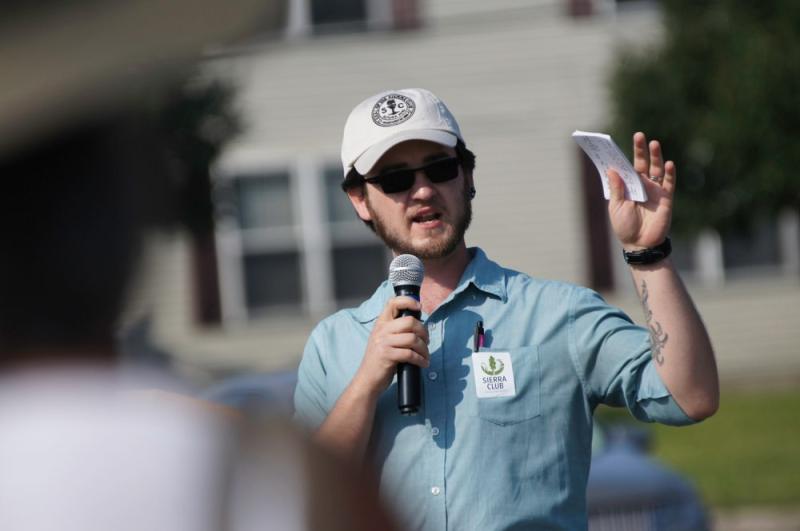Most commenters at a recent Delaware Department of Natural Resources and Environmental Control workshop were in agreement: Delaware needs to join the six other states that are or have already adopted the Advanced Clean Cars 2 standards that promote the transition to clean, affordable cars and light-duty trucks.
While opponents declare that Delaware has no air-quality issues, the experience on the ground and health data argue to the contrary. Many communities, specifically those near our state’s highway systems and industrial areas, have long suffered from poor air quality. The American Lung Association’s State of the Air report for 2022 gives New Castle County an F grade for ozone pollution. So while the ambient air-quality standards can be debated, what cannot be debated is that, on the ground, families are suffering from air-quality issues because of fossil fuel-powered cars.
There have been concerns raised over grid impacts, citing concerns in California and Texas. However, California’s grid was heavily impacted by triple-digit temperatures, wildfires, droughts and floods, while in Texas, the disruption was caused, in large part, by the natural gas infrastructure system freezing due to historically low temperatures – all directly linked to climate change. In both of these cases, EV technology would have actually helped the grid, as well as customers, by stabilizing it and providing emergency power for homes. A vehicle like the Ford F-150 Lightning, for example, has been lauded for its ability to power a whole house for three days.
Here in Delaware, PJM, our grid operator, has stated they are not worried about meeting the demands as EVs ramp up. The ACC2 timeline is over the span of 12 to 15 years and even then, 70% of cars on the road will still be gas-powered cars. And studies have shown that EVs require little grid upgrades.
There were also concerns over whether this rule would impact farm equipment, heavy-duty vehicles, semi trucks, construction equipment and other non-passenger vehicles. It does not. It also does not impact used vehicles or vehicles currently on the road. The rules also allow for plug-in hybrid vehicles, which could satisfy concerns over range, technology and infrastructure.
Some have argued that battery technology will require EV batteries to be replaced quickly.
Luckily, ACC 2 requires strong warranties through eight years, 100K miles. But, the industry average EV battery is expected to outlast the use of the car, which has a life expectancy of 15 to 20 years. And battery warranties are much like drivetrain warranties in gas cars: They are generally for a set number of years and miles, but that does not mean that the drivetrain only lasts that long.
EVs also save drivers money over the life of the vehicle. While the upfront cost of an EV can be more expensive than a gasoline car, EVs are expected to reach price parity with gas cars well before the 2035 goal of 100% of new cars being delivered to Delaware be electric or plug-in hybrid. And rebates from Delaware ($2,500), as well as federal tax credits ($7,500) and new point-of-sale rebates on used EVs ($4,000) can help to lower those upfront costs. Plus, there are already vehicles for under $30,000 available today.
Major car manufacturers have already committed to 100% battery or plug-in hybrid technology and have announced investments of more than $100 billion to support this transition. The EU and several other nations have set as strict, or more strict, timelines for auto manufacturers to move to EVs. Here in the United States, the 16 states that have adopted the current ACC program (which ends in vehicle model year 2025) represent around 40% of all new car sales in the United States. The transition to electric transportation is well underway.
So, does Delaware want the private investments and benefits that all the other ACC states have enjoyed since the program was created over a decade ago? Do we want Delawareans to be able to purchase the clean vehicles they want in the state, or have to go to New Jersey or Maryland to do so? Do we want private companies to invest in the infrastructure needed to meet these targets? Do we want auto manufacturers to push further incentives to help make these cars even more affordable to our residents?
Vermont, a state very similar to Delaware in its reliance on agriculture, and rural versus urban populations, decided this month to say yes to these questions by adopting ACC2.
If Vermont can do it, so can Delaware.






















































